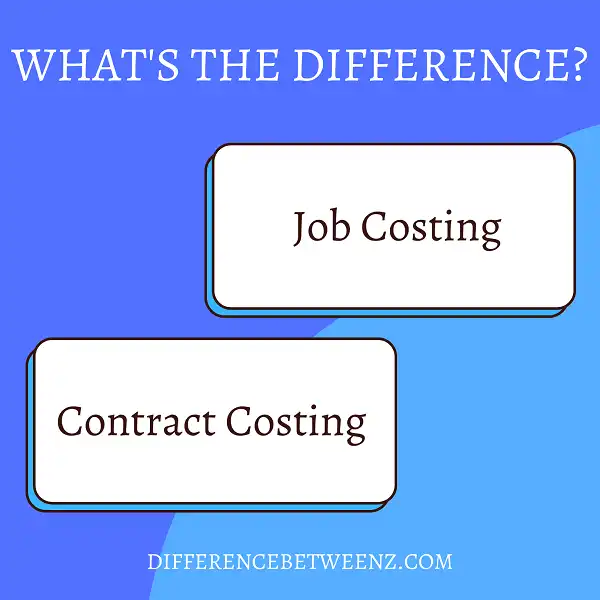Are you a company owner or an accountant responsible for managing costs and expenditures? Are you confused by the differences between job costing and contract costing and how they affect your bottom line? If so, then this blog post is for you! In this article, we will explain in detail what separates job costing from contract costing, the various techniques used to measure cost efficiency in each system, as well as tips on which one may be right for your business. We’ll also include some practical examples of how to apply these concepts in order to maximize cost savings. Once you understand these two very different approaches to tracking and accounting expenses, it can help take your business finances to the next level!
What is Job Costing?
Job Costing is an essential element of modern accounting and management practices. Job Costing is a method of assigning the costs associated with a project, such as timesheets, resources, and materials to specific jobs or activities. In this way, Job Costing helps organizations better understand their internal costs for different projects, and make informed decisions that optimize how those resources are used over time. Job Costing can also be used to provide insights into future projects, analyze profitability and inform pricing decisions. With Job Costing, businesses can achieve greater operational efficiency and cost savings.
What is Contract Costing?
Contract Costing is an important type of cost accounting that involves identifying, measuring, and assigning costs to specific contracts or orders. Contract Costing helps organizations understand how their fixed costs are associated with each order they accept – this way they can more accurately forecast income and expenses and make smarter decisions.
Contract Costing also helps organizations identify inefficiencies within the manufacturing process and take corrective steps to optimization and increased profitability. In short, Contract Costing arms organizations with the analytics needed to ensure maximum profit from every contract or job taken on.
Difference between Job Costing and Contract Costing
Job Costing and Contract Costing are two distinct costing systems used to evaluate the financial costs of specific projects.
- Job Costing is a method used when jobs are different from each other, with distinct processes and activities, while Contract Costing is used when it is necessary to accumulate information on large-scale contracts that involve similar activities.
- Job Costing requires each job to be evaluated individually and allows the costs of the job to be tracked in order to determine profitability. Contract Costing typically involves a predetermined set of costs which must be allocated across a particular contract until it has been completed.
- Job Costing usually focuses on an individual product or service, whereas Contract Costing typically applies to multiple products or services under one contract.
Both Job and Contract Costings provide crucial information and insights that aid businesses in better budget allocations and accurate decision-making.
Conclusion
Job costing and contract costing are two methods of assigning costs to a product. Job costing is used when each job is different, while contract costing is used when there are multiple products that are the same. The main difference between the two methods is how direct costs are assigned. With job costing, direct costs are assigned to each individual job. With contract costing, direct costs are assigned to all the products in the batch equally. There can be advantages and disadvantages to both methods, so it’s important to choose the one that makes the most sense for your business.
Thanks for reading! We hope this article helped clear up any confusion about job costing vs contract costing.


